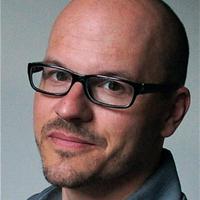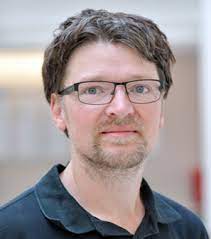Prof. Jochen M. Schwenk (SciLifeLab, Sweden)
Jochen M Schwenk is a Professor in Translational Proteomics at KTH Royal Institute of Technology in Stockholm, Sweden.
His research focuses on applying advanced methodologies to study the roles of circulating proteins in human health and disease. Jochen studied Biochemistry at the University of Tübingen and received his PhD in 2005 for his work on multiplexed immunoassays. He then joined Mathias Uhlén and the Human Protein Atlas (www.proteinatlas.org) as a postdoc, where he developed affinity proteomics methods for studying proteins circulating the human blood. In 2010, Jochen’s lab relocated to the Science for Life Laboratory (www.scilifelab.se), where he also acts as Scientific Director for a National Facility. Jochen is an elected member of HUPO’s Council, a former member of the HPP Executive Committee, and the Chair of the Human Plasma Proteome Project.
Title of plenary talk: "The dynamic architecture of the circulating proteome"

Prof. Markus Ralser (Charité Universitätsmedizin Berlin, Germany)
Markus Ralser, Prof. Dr. Mag. (*1980), Einstein Professor of Biochemistry, is a leading scientist in the field of cellular metabolism and high-throughput mass spectrometry.
His laboratory focuses on dissecting the biochemical and evolutionary logic of metabolism. He has made significant contributions in understanding how cellular metabolism is controlled at the scale of the genome, and how cells reconfigure metabolism to survive stress situations. The Ralserlab is further known for its work in high throughput proteomics, a technological development driven by the need to understand metabolic networks in which hundreds of enzymes interact through interconverting an even higher number of metabolites. M Ralser is currently the head of Charité’s Institute of Biochemistry in Berlin, and a senior Group leader at the Francis Crick Institute in London. With a PhD background in Neuroscience, Markus started his independent scientific career as a Junior group leader at the Max Planck Institute for Molecular Genetics. In 2011, he then moved to the Cambridge Centre for Systems Biology and the Department of Biochemistry, University of Cambridge, and later, the Francis Crick Institute. Markus Ralser is the recipient of several notable science awards which included two ERC grants (Starting grant, Synergy grant), the Wellcome Beit Prize, the BioMed Central Research Award, the Colworth Medal of the Biochemical Society, the Starling Medal of the Endocrinological Society, and the EMBO Gold Medal. He is an EMBO Member.
Title of plenary talk: "The metabolic and proteomic landscape of genome-scale genetic perturbation"
